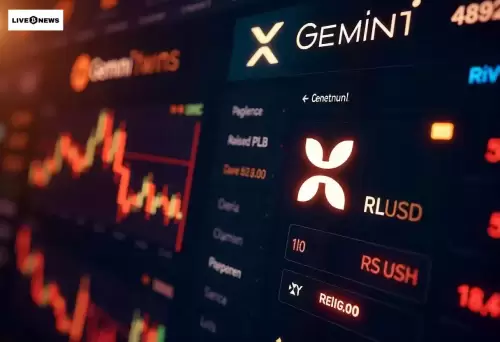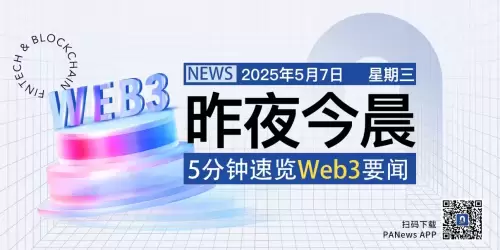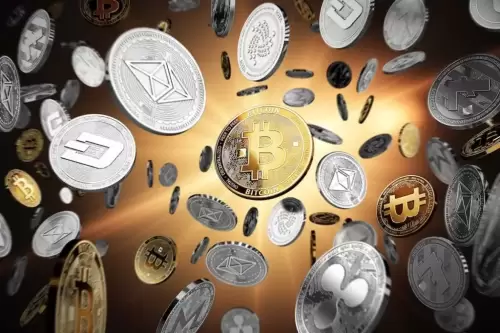 |
|
 |
|
 |
|
 |
|
 |
|
 |
|
 |
|
 |
|
 |
|
 |
|
 |
|
 |
|
 |
|
 |
|
 |
|
ビットコインコアは、票が支配する民主主義ではありません。大まかなコンセンサスに基づいているはずです。誰でも、op_returnのリラックス制限に関するコンセンサスがないことを知ることができます。

A heated dispute has emerged within the Bitcoin developer and user community over a proposal to remove or loosen limits on OP_RETURN, a feature that allows embedding arbitrary data in Bitcoin transactions.
ビットコイントランザクションに任意のデータを埋め込むことができる機能であるOP_Returnの制限を削除または緩めるという提案をめぐって、ビットコイン開発者とユーザーコミュニティ内で激しい紛争が現れました。
Bitcoin Core is not a democracy governed by votes. It’s supposed to be based on rough consensus. Anyone can see that there is no consensus on relaxing OP_RETURN limits. Pushing ahead on this change is going down a slippery slope.
ビットコインコアは、票が支配する民主主義ではありません。大まかなコンセンサスに基づいているはずです。誰でも、op_returnのリラックス制限に関するコンセンサスがないことを知ることができます。この変化を推し進めることは、滑りやすい斜面になります。
This debate exposes longstanding tensions between those focused on Bitcoin as sound money and those seeking to standardize mempools and "clean up the code."
この議論は、サウンドマネーとしてビットコインに焦点を当てた人々と、メンバーを標準化して「コードを浄化する」ことを求めている人々との間で長年の緊張をもたらします。
The disagreement centers on whether lifting OP_RETURN limits would increase spam-like data in the blockchain, threatening Bitcoin’s core design as a decentralized monetary network.
意見の相違は、Op_returnの制限を持ち上げてブロックチェーン内のスパムのようなデータを増加させるかどうかに焦点を当て、分散型通貨ネットワークとしてビットコインのコア設計を脅かします。
Bitcoiners, such as Samson Mow, Matthew Krater, and Adam Back state that normalizing non-monetary data use erodes Bitcoin’s purpose as a store of value and sound money.
Samson Mow、Matthew Krater、Adam Backなどのビットコイナーは、非金銭的なデータの使用を正規化することで、ビットコインの目的が価値と健全なお金のストアとして侵食されていると述べています。
Krater draws on everyday analogies — like email spam and bloated apps — to stress that just because someone pays a fee does not make all transactions legitimate.
Kraterは、電子メールスパムや肥大化したアプリなど、日常の類推を引き出して、誰かが料金を支払うからといってすべての取引を正当化しないことを強調しています。
“There are spam filters for a reason, and Bitcoin should resist becoming a dumping ground for inscriptions, NFTs, or arbitrary files,” he adds.
「理由でスパムフィルターがあり、ビットコインは碑文、NFT、または任意のファイルのゴミ捨て場になることに抵抗する必要があります」と彼は付け加えます。
Echoing this, many warn that adding extra data harms node operators by increasing storage burdens and network bloat, effectively turning Bitcoin into a “data storage system” rather than a peer-to-peer financial protocol.
これを反映して、多くの人は、ストレージの負担とネットワーク膨張を増やすことで追加のデータに害を及ぼすことを警告し、ビットコインをピアツーピアの金融プロトコルではなく「データストレージシステム」に効果的に変えることを警告しています。
“Why are we incentivizing spam?” asks Mow.
「なぜスパムを奨励するのですか?」 Mowに尋ねます。
He notes that past measures, like Satoshi’s original spam filters and the 2014 OP_RETURN cap, were explicitly meant to prevent Bitcoin’s blockchain from being overloaded with non-financial data.
彼は、Satoshiのオリジナルスパムフィルターや2014年のOp_return Capのような過去の測定は、ビットコインのブロックチェーンが非財務データで過負荷になるのを防ぐために明示的に意図されていると指摘しています。
Removing those filters, he argues, invites abuse, potentially undermining Bitcoin’s long-term security and decentralization by making it more costly and cumbersome to run a node.
彼は、これらのフィルターを削除すると、虐待を招き、ビットコインの長期的なセキュリティと分散化を弱体化させる可能性があると主張します。
On the other side, Jameson Lopp and some Core contributors maintain that technical discussions belong inside Bitcoin’s GitHub repository, not on social media, and that protocol changes should rely on rational, well-documented arguments.
一方、ジェイムソン・ロップといくつかのコア貢献者は、ソーシャルメディアではなく、ビットコインのGitHubリポジトリ内に技術的な議論が属し、プロトコルの変更は合理的で十分に文書化された議論に依存するべきであると主張しています。
Lopp notes that while rough consensus guides Bitcoin’s evolution, non-contributors’ opinions on platforms like X do not affect formal development decisions.
Loppは、ラフコンセンサスがビットコインの進化をガイドする一方で、Xのようなプラットフォームに関する非招待者の意見は正式な開発の決定に影響しないと指摘しています。
However, Bob Burnett counters that dismissing outside perspectives creates a gatekeeping dynamic that alienates newer or non-technical participants.
しかし、ボブ・バーネットは、外部の視点を却下すると、新しいまたは非技術的な参加者を疎外するゲートキーピングのダイナミクスを作成すると反論します。
That is a bad, bad look. If guys like Samson and I (or you) can't even weigh-in with an opinion to be considered, then the system is seriously, seriously broken. I disagree with you on this issue here but respect you enough based on your history to say your opinion should count.
それは悪い、悪い表情です。サムソンや私(またはあなた)のような人が考慮される意見で計量することさえできない場合、システムは真剣に、真剣に壊れています。私はここでこの問題についてあなたに同意しませんが、あなたの歴史に基づいてあなたの意見を数えるべきだと言うのに十分尊敬してください。
Some defenders of removing the OP_RETURN limits argue that since arbitrary data is already entering the blockchain through methods like Taproot, offering a less harmful, structured avenue (such as OP_RETURN) could mitigate overall damage.
Op_returnの制限を削除する擁護者の中には、Taprootなどの方法を介して任意のデータがすでにブロックチェーンに入っているため、あまり有害で構造化されたアベニュー(Op_returnなど)を提供することができると主張しています。
But opponents challenge this logic, saying it effectively normalizes spam instead of deterring it.
しかし、対戦相手はこのロジックに挑戦し、スパムを阻止するのではなく効果的に正規化すると言っています。
They highlight that while filters may not eliminate every misuse, they significantly raise the cost and effort of spam attacks—justifying their continued use.
彼らは、フィルターがすべての誤用を排除しないかもしれないが、スパム攻撃のコストと努力を大幅に引き上げ、継続的な使用を正当化することを強調しています。
Underlying the technical arguments is a deeper philosophical rift over Bitcoin’s identity.
技術的な議論の根底にあるのは、ビットコインのアイデンティティに対するより深い哲学的裂け目です。
Those against the proposed change emphasize Bitcoin’s cultural foundation: it is a monetary system optimized for censorship resistance, sovereignty, and decentralization—not a general-purpose database.
提案された変更に反対する人々は、ビットコインの文化的基盤を強調しています。それは、汎用データベースではなく、検閲抵抗、主権、および分散化のために最適化された金融システムです。
They point out that relaxing controls on non-financial uses opens the door to “mission creep,” where Bitcoin’s defining properties are gradually diluted, mirroring the trajectory of more feature-heavy, centralized blockchains like Ethereum.
彼らは、非金融用途でのリラックスコントロールが「ミッションクリープ」への扉を開くと指摘します。ビットコインの定義プロパティが徐々に希釈され、イーサリアムのようなより機能が多い集中ブロックチェーンの軌跡を反映しています。
Developers backing the change, however, often frame their stance as promoting user freedom and adaptability, asserting that Bitcoin’s protocol should not rigidly restrict potential use cases unless there is clear and present harm.
ただし、変更を支持する開発者は、多くの場合、ユーザーの自由と適応性を促進する姿勢を組み立て、ビットコインのプロトコルが明確で現在の害がない限り、潜在的なユースケースを厳密に制限すべきではないと主張します。
However, past upgrades like SegWit and Taproot have already led to unexpected network congestion, as noted by Jesse Meyers.
ただし、Jesse Meyersが指摘しているように、SegwitやTaprootのような過去のアップグレードは、すでに予期しないネットワークの混雑をもたらしています。
Didn’t segwit / taproot unexpectedly enable NFTs on Bitcoin? And Core didn’t anticipate that outcome…and now we’re supposed to trust Core’s opinion that there’s no downsides to removing this other data constraint?Completely baffled by @lopp and other staunch advocates for this change. https://t.co/53YjP2gJ8I
segwit / taprootは予想外にビットコインでNFTを有効にしませんでしたか?そして、Coreはその結果を予想していませんでした...そして今、私たちはこの他のデータの制約を削除する欠点がないというCoreの意見を信頼することになっています。 https://t.co/53yjp2gj8i
The debate has also sparked broader concerns about governance. Some, like Mow, warn that if Bitcoin Core developers push changes without broad support, the community has options.
この議論は、ガバナンスについてもより広範な懸念を引き起こしました。 Mowのように、Bitcoin Core開発者が幅広いサポートなしで変更をプッシュした場合、コミュニティには選択肢があることを警告する人もいます。
They can withhold funding from developer groups, switch to alternative software like Bitcoin Knots, or organize user-activated soft forks (UASF) to reassert control.
開発者グループからの資金を差し控えたり、ビットコインノットなどの代替ソフトウェアに切り替えたり、ユーザー活性化ソフトフォーク(UASF)を整理してコントロールを再主張したりできます。
The rhetoric that you must be a Core dev for your opinion to matter is not conducive for good faith discussions to reach consensus.However, there are many things that can be done to mitigate this. If Bitcoin Core devs are going rogue, as @mattkratter says, there is actually a lot of power
あなたがあなたの意見が問題になるためのコア開発でなければならないというレトリックは、誠実な議論がコンセンサスに到達するために役立ちません。しかし、これを緩和するためにできることはたくさんあります。 @mattkratterが言うように、ビットコインコア開発者が不正になっている場合、実際には多くの力があります
免責事項:info@kdj.com
提供される情報は取引に関するアドバイスではありません。 kdj.com は、この記事で提供される情報に基づいて行われた投資に対して一切の責任を負いません。暗号通貨は変動性が高いため、十分な調査を行った上で慎重に投資することを強くお勧めします。
このウェブサイトで使用されているコンテンツが著作権を侵害していると思われる場合は、直ちに当社 (info@kdj.com) までご連絡ください。速やかに削除させていただきます。



















![Bonk Coinの価格予測、[水曜日! ] Bonk Coinの価格予測、[水曜日! ]](/uploads/2025/05/07/cryptocurrencies-news/videos/bonk-coin-price-prediction-wednesday/image_500_375.webp)




































